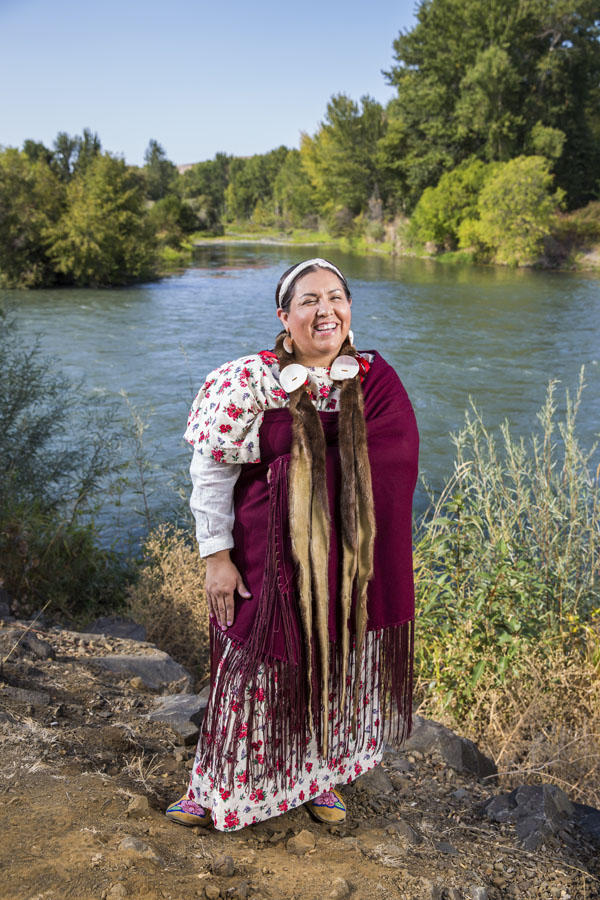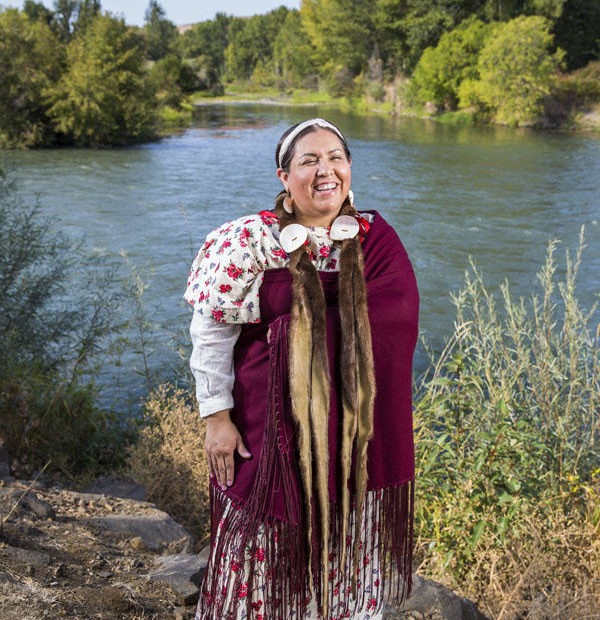
Daughters of Hanford: A Quiet Native American Woman Speaks Up For Her Nation
Listen
This story originally published JUN 2, 2015
The Hanford Nuclear Reservation in southeast Washington is one of the most contaminated places on earth. It’s also one of the most sacred landscapes for Northwest tribes.
One woman is working to heal it.
Downstream from the Yakima Greenway, Hanford is changing. Cleanup is happening. But Natalie Swan is also changing, because of the southeast Washington nuclear site.
“I’m a quiet person,” she said. “But I’m getting a little bit louder.”
Fighting for Treaty rights
She is perhaps the shyest person I’ve ever interviewed, but Swan has an important job for the Yakama Nation. She helps negotiate long-term Hanford cleanup on behalf of the Yakama tribes and their federal treaty of 1855. She never expected to speak for her own Yakama Nation and the plants, animals and landscape they care about.
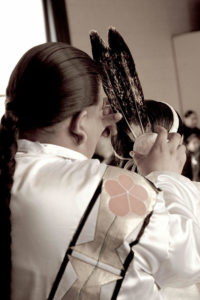
Natalie Swan and her husband Johnny during their wedding.
NATALIE SWAN
Now she’s a representative of the Hanford Natural Resources Trustee Council. She and the group decide how to account for what happened to the environment during World War II and the Cold War.
To protect the outdoors at Hanford, Swan sits in a lot of conference rooms. It’s what a lot of the real work at Hanford looks like — long meetings. The board is made up of representatives from state, federal and tribal governments. And those different viewpoints often don’t agree.
“Because there are so many different sovereigns, and agencies there will be differences,” Swan explained. “And to that I would just say that Yakama Nation is fearless in protecting resources.”
By that, she meant the tribes are flanked by lawyers to ensure their 1855 Treaty rights — to hunt, gather and fish from the millions of acres of Washington state lands — are protected.
‘It’s not a wasteland’
Some think Hanford’s landscape looks barren. But Swan says this special place and its plants, animals and fish will always hold great value for the Yakama people. Hanford is part of their traditional range.
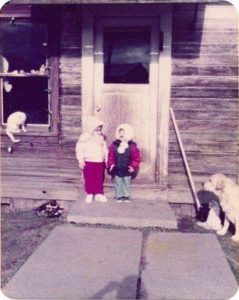
Natalie Swan and her younger sister Katie at their grandmother’s house in the early 1980s. NATALIE SWAN
After several attempts to explain, Swan braced herself, spoke up and said, “So it’s not a wasteland.”
Swan cares so much about Hanford and these meetings, sometimes she even grinds her teeth. To her, Hanford is “like a giant, enormous food web, that’s why it’s important to me.”
Swan has a four-year biology degree. And one main reason for doing this work is her life-long love of the region’s plants.
“I think one of my favorite plants is the little wild strawberry that grows in higher elevations,” Swan said. “It just tasted so delicious as a kid.”
As that kid, she took careful note of traditional food and medicine plants, and those sweet wild strawberries.
“And every time I taste them now they just bring me back to that moment,” she said.
The moment she tasted one for the first time.
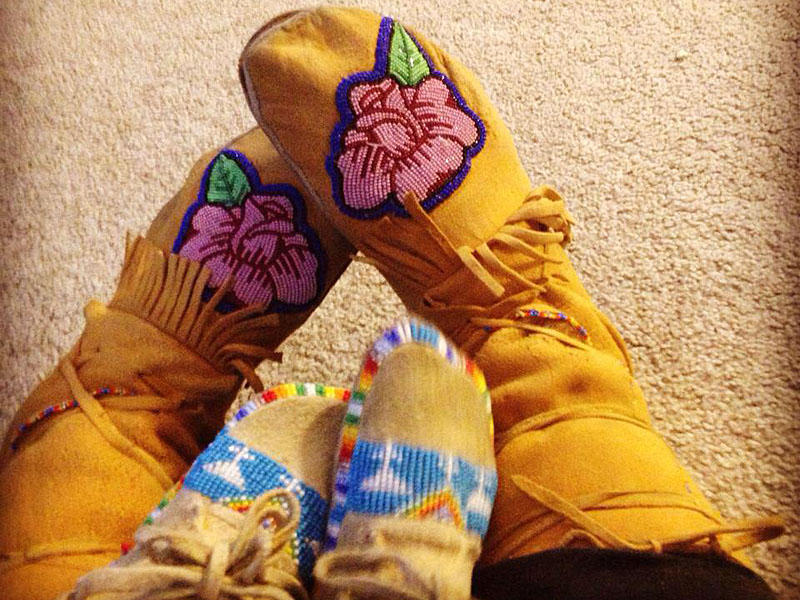
Natalie’s beaded rose moccassins were made by her maternal grandmother Catherine Arquette when Natalie was 12. Jonathan’s beaded moccassins were made by Jon Shellenberger for his first birthday. NATALIE SWAN
Preserving her culture
Her two-year-old son Jonathan is an everyday reminder of what she’s working for. Long hair and a quick smile.
Swan wants a clean environment for Jonathan, and his children and their children. She wants her culture to survive past him. And that’s tied to a huge swath of this landscape. Now, some of it’s called “Hanford.”
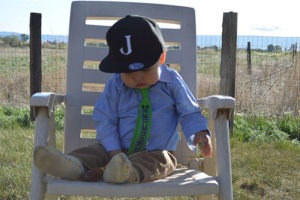
Natalie Swan says she wants to preserve a clean environment for her son, Jonathan. The two-year-old son Jonathan is an everyday reminder of what she’s working for. His Indian name is Nabi-shish, Chippewa Cree for ‘Little Man.’ NATALIE SWAN
“And to just to be able to continue to be able to share teachings that were shared with myself growing up as a kid, related to the land.”
Swan’s never forgotten those wild strawberries. She stitches their sweet shape and memory, into her traditional beadwork. For the plants and people she loves, she’s getting a little louder.
Listen
Related Stories:

Idaho law: Health care providers, institutions can refuse care
A new law in Idaho gives health care professionals the right to refuse care based on personal beliefs or principles. (Credit: AP / Charlie Litchfield) Listen (Runtime 00:49) Read A

Whitman County reports first flu-related death of the season
Hospitalman Yenifer Gutierrez, left, and Hospitalman Brashea Ojeda treat COVID patients in the ICU Aboard USNS Comfort in April of 2020. Influenza deaths surpassed COVID-19 deaths for this first time

Unpacked: Giving spiritual meaning to food during Lent
For Lent this year, the Rev. Rene’ Devantier of Spokane’s Fowler United Methodist Church uses real food and drink elements. (Credit: Cody Wendt / FāVS News) Listen (Runtime 1:47) Read

